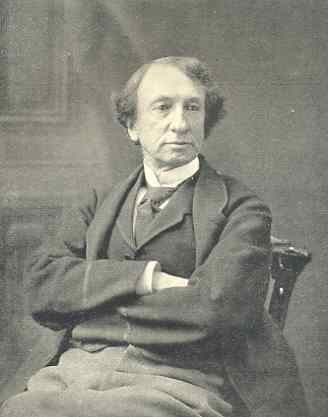
|
|
| Date Published: |
L’Encyclopédie de l’histoire du Québec / The Quebec History Encyclopedia
Sir John A. Macdonald
Macdonald,
Sir John Alexander (1815-1891), statesman, was born on January 11, 1815,
The defeat of this administration and the consequent deadlock in government resulted in the formation of the "Great Coalition" which brought about the confederation of the British North American provinces. In the formation of this coalition Macdonald played a leading part; and he came to be regarded, especially after the resignation of George Brown from the government in 1865, as the chief architect of Confederation. He took a foremost part both in the Quebec Conference of 1864 and in the London Conference of 1866, at which the details of the British North America Act were worked out. In 1867, therefore, he was selected as first prime minister of the Dominion of Canada; and he continued to fill this office, except for the period of the Mackenzie administration (1873-8), until his death. His defeat in 1873 was the result of the so-called "Pacific Scandal", and it was thought that his eclipse on this occasion would be permanent; but in 1878 he came back to power on the "National Policy" of high protection, and in the three subsequent general elections, in 1882, in 1886, and in 1891, he proved invincible at the polls. The elections of 1891, however, were too great a strain on his health; and on June 6, 1891, he died at Ottawa.
Macdonald had not perhaps a high code of political ethics, and he at times raised opportunism almost to the level of a political principle; yet it may be doubted whether a statesman of stricter views could have guided the destinies of Canada during the difficult period of his prime ministry as successfully as he did. In the art of managing men he was unrivalled; and there were some points, such as the safeguarding of law and order and the continuance of the British connection, on which he knew no compromise. To his initiative were due, also, the inclusion in the Dominion of British Columbia and the North West, and the building of the Canadian Pacific Railway. In many ways, the Dominion of Canada is to-day the creature of his statesmanship.
For his services in connection with Confederation, he was created in 1867 a K.C.B. In 1879 he was sworn of the privy council, and in 1884 he became a G.C.B. He was a D.C.L. of Oxford (1865), and in 1886 he was offered by Cambridge the degree of LL.D. He was twice married, first in 1843 to his cousin Isabelle Clark (d. 1858), and second to Susan Agnes Bernard, who was, after his death, created Baroness Macdonald of Earnscliffe. By his first wife he had two sons, one of whom died in infancy; and by his second wife one daughter.
The chief authorities are Sir J. Pope, Memoirs of Sir J. A. Macdonald (2 vols., Ottawa, 1895; new ed., Toronto , 1930), The day of Sir John Macdonald (Toronto, 1915), and Correspondence of Sir John Macdonald (Toronto, 1921). There are a number of other biographies, but none of these are of much original value except G. R. Parkin, Sir John A. Macdonald (Toronto, 1910) and E. B. Biggar, Anecdotal life of Sir John Macdonald (Montreal, 1891). Useful materials are to be found in Sir R. Cartwright, Reminiscences (Toronto, 1912), to which Sir J. Pope issued a rejoinder; in Goldwin Smith, Reminiscences (New York, 1910); and in biographies of such contemporaries of Macdonald as Brown, Cartier, Galt, Mackenzie, Tupper, and Laurier. General historical works covering the period of Macdonald's political career are J. C. Dent, The last forty years (2 vols., Toronto, 1881) and J. S. Willison, Sir Wilfrid Laurier and the Liberal party (2 vols., Toronto, 1903). [Consult the biography found elsewhere at the site. For more information, see John A. Macdonald's biography at the Dictionary of Canadian Biography and at the Canadian Encyclopedia.] Source : W. Stewart WALLACE, ed., The Encyclopedia of Canada, Vol. IV, Toronto, University Associates of Canada, 1948, 396p., pp. 165-166.
|
© 2005
Claude Bélanger, Marianopolis College |
|
